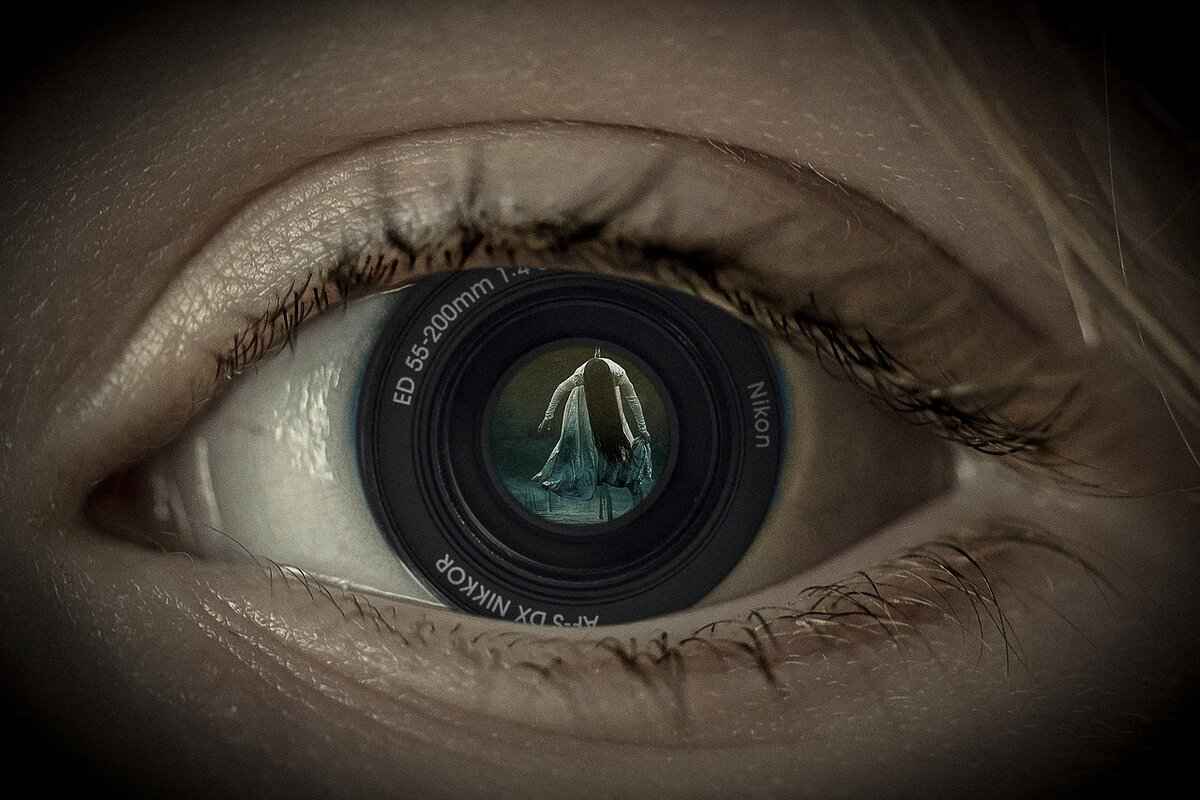This article explores the impact of action cameras on electronic waste and offers practical solutions for consumers to mitigate their environmental footprint.
What is E-Waste and Why is it a Concern?
E-waste, or electronic waste, encompasses discarded electronic devices, including action cameras, smartphones, and computers. This growing issue poses significant environmental and health risks. The improper disposal of e-waste can lead to hazardous materials leaching into soil and water, affecting ecosystems and human health. Understanding the implications of e-waste is crucial for fostering responsible consumer behavior and promoting environmental sustainability.
How Do Action Cameras Contribute to E-Waste?
Action cameras have surged in popularity, especially among adventure enthusiasts and content creators. However, their rapid technological advancements and short lifespans contribute significantly to e-waste. Many consumers feel pressured to upgrade to the latest model, resulting in older cameras being discarded rather than reused or recycled.
Trends in Action Camera Sales and Upgrades
The fast-paced innovation in action cameras often leads to frequent upgrades. For instance, manufacturers release new models with enhanced features every year, making previous models seem outdated. This trend creates a cycle of consumption that exacerbates the e-waste problem.
Durability and Lifespan of Action Cameras
Many action cameras are designed for specific activities, which can limit their durability. Understanding the lifespan of these devices can empower consumers to make informed purchasing decisions. Opting for cameras that offer longevity and repairability can help mitigate e-waste.
Environmental Impact of E-Waste from Action Cameras
The disposal of action cameras can lead to environmental degradation. These devices often contain toxic components such as lithium, cadmium, and lead. If not disposed of properly, these materials can leach into the environment, posing risks to both wildlife and human health.
Toxic Components in Action Cameras
Recognizing the harmful materials in action cameras is vital for responsible disposal. Consumers should be aware that improper disposal can lead to soil and water contamination, affecting ecosystems and communities.
Carbon Footprint of Manufacturing Action Cameras
The production of action cameras requires substantial energy and raw materials, contributing to their carbon footprint. By understanding the environmental impact of manufacturing processes, consumers can make more sustainable choices when purchasing these devices.
What Can Consumers Do to Reduce E-Waste?
Consumers play a pivotal role in reducing e-waste from action cameras. Implementing sustainable practices can significantly mitigate their environmental impact.
Choosing Durable and Repairable Models
When purchasing an action camera, opting for models that are built to last and can be repaired rather than replaced is essential. Researching product reviews and durability ratings can guide consumers toward making responsible choices.
Participating in E-Waste Recycling Programs
Many organizations offer e-waste recycling programs specifically for electronics, including action cameras. Participating in these programs ensures that old devices are disposed of responsibly, minimizing their impact on the environment.
Can Action Cameras Be Repaired or Upcycled?
Repairing or upcycling action cameras can extend their life and reduce waste. Exploring these options not only benefits consumers financially but also contributes positively to the environment.
DIY Repair Tips for Action Cameras
Many minor issues with action cameras can be fixed at home. Learning basic repair techniques can save money and significantly reduce electronic waste. Online tutorials and community forums can provide valuable guidance for DIY repairs.
Creative Upcycling Ideas for Old Action Cameras
Old action cameras can be transformed into unique DIY projects. For example, they can be repurposed into webcams, security cameras, or even art installations. Exploring creative ways to repurpose these devices can help minimize e-waste while sparking creativity.
Future Trends in Action Camera Sustainability
As awareness of e-waste grows, manufacturers are increasingly focusing on sustainability. Innovations such as modular designs, recyclable materials, and energy-efficient production processes are becoming more common. Understanding these trends can guide consumers toward more responsible choices in the future.

What is E-Waste and Why is it a Concern?
E-waste, or electronic waste, encompasses a wide range of discarded electronic devices, including everything from smartphones to laptops and, notably, action cameras. As technology advances at an unprecedented pace, the lifespan of these devices often shortens, leading to a growing concern about their disposal. Understanding the implications of e-waste is essential for fostering responsible consumer behavior and promoting environmental sustainability.
Why is E-Waste a Growing Concern?
The alarming rise in e-waste is attributed to several factors. Firstly, the rapid technological advancements in electronics lead to frequent upgrades, rendering older models obsolete. This cycle of consumption not only contributes to a massive amount of waste but also poses significant environmental and health risks. Many electronic devices contain hazardous materials that can leach into the soil and water systems if not disposed of properly.
Health Risks Associated with E-Waste
- Toxic Components: E-waste often contains dangerous substances such as lead, mercury, and cadmium, which can result in serious health issues if they enter the ecosystem.
- Pollution: Improper disposal methods, including burning or dumping in landfills, can release harmful toxins into the air, contributing to air pollution and respiratory problems.
Environmental Impact of E-Waste
The environmental impact of e-waste extends beyond immediate health concerns. When electronic devices are discarded, valuable resources such as metals and plastics are lost, leading to increased resource extraction and energy consumption in manufacturing new products. This cycle not only depletes natural resources but also contributes to a larger carbon footprint.
Understanding E-Waste Management
Effective e-waste management is crucial in addressing these concerns. Consumers must be aware of their role in the lifecycle of electronic devices, from purchase to disposal. Proper recycling and disposal methods can significantly mitigate the negative impacts associated with e-waste.
What Can Be Done to Address E-Waste?
To combat the growing e-waste problem, individuals and organizations must take proactive steps:
- Recycling Programs: Participate in local e-waste recycling initiatives that ensure safe disposal and recovery of valuable materials.
- Responsible Purchasing: Opt for devices that are designed for longevity and can be easily repaired or upgraded, reducing the need for new purchases.
- Education: Increase awareness about the importance of proper e-waste disposal and the potential risks associated with improper handling.
Conclusion
In summary, e-waste presents significant environmental and health challenges that require immediate attention. By understanding its implications and adopting responsible consumer practices, we can contribute to a more sustainable future. Awareness and action are key in reducing the impact of e-waste on our planet.

How Do Action Cameras Contribute to E-Waste?
Action cameras have become increasingly popular among adventure enthusiasts and sports lovers. However, while they capture thrilling moments, they also contribute significantly to the growing problem of electronic waste (e-waste). This article delves into how these devices impact the environment and what consumers can do to mitigate their effects.
Action cameras are designed with cutting-edge technology that often becomes obsolete within a short period. The rapid pace of innovation leads to frequent upgrades, pushing consumers to replace their devices more often than necessary. This cycle of consumption raises important questions about the sustainability of these products in a market that thrives on novelty.
- Frequent Releases: Manufacturers regularly launch new models with enhanced features, prompting consumers to discard older versions.
- Consumer Behavior: Many consumers feel pressured to keep up with the latest technology, leading to a culture of disposability.
- Short Product Lifespan: Most action cameras are designed for specific activities, which can limit their usability over time.
While some action cameras are built to withstand extreme conditions, their overall lifespan is often limited. Factors such as battery life and the availability of replacement parts can affect how long a camera remains functional. Consumers should consider the durability of a product before making a purchase, as a longer-lasting camera can significantly reduce e-waste.
The disposal of action cameras poses serious environmental risks. When these devices are thrown away, they can release hazardous materials into the soil and water systems. Understanding these impacts is crucial for consumers who are concerned about sustainability.
Many action cameras contain harmful materials such as lithium, cadmium, and lead. These components can leach into the environment if not disposed of properly. Awareness of these toxic substances is essential for responsible disposal practices, ensuring that consumers do not inadvertently contribute to environmental degradation.
The production of action cameras involves significant energy consumption and resource extraction, contributing to their overall carbon footprint. By understanding this impact, consumers can make more informed decisions that favor sustainability. Opting for brands that prioritize eco-friendly manufacturing processes can help reduce the environmental impact.
Consumers play a pivotal role in combating e-waste generated by action cameras. Implementing sustainable practices can help mitigate their environmental impact.
Selecting action cameras that are designed for longevity and repairability can significantly reduce e-waste. Researching products before purchasing and opting for brands that offer repair services can lead to more sustainable choices.
Many organizations offer e-waste recycling programs specifically for electronic devices. Participating in these initiatives ensures that old action cameras are disposed of responsibly, minimizing their impact on the environment.
Repairing or upcycling action cameras can extend their lifespan and reduce waste. Exploring these options can benefit both consumers and the environment.
Many minor issues with action cameras can be resolved at home. Learning basic repair techniques not only saves money but also contributes to reducing e-waste.
Old action cameras can be repurposed into unique DIY projects, such as:
- Transforming them into novelty clocks.
- Using them as decorative pieces.
- Creating custom mounts for other devices.
By exploring creative ways to repurpose them, consumers can minimize e-waste while sparking their creativity.
As awareness of e-waste grows, manufacturers are increasingly focusing on sustainability. Understanding these trends can guide consumers toward more responsible choices in the future, fostering a healthier planet.
Trends in Action Camera Sales and Upgrades
The world of action cameras is evolving at an unprecedented rate, with manufacturers introducing new models and features almost every year. This rapid pace of innovation leads to a cycle of frequent upgrades, where consumers often feel compelled to discard older models. Unfortunately, this trend significantly exacerbates the growing issue of electronic waste (e-waste).
As technology advances, the features and capabilities of action cameras improve dramatically. New models often boast enhanced image quality, improved stabilization, and additional functionalities that older models lack. This constant influx of updated technology creates a sense of urgency among consumers to upgrade their devices, leading to the premature disposal of perfectly functional cameras.
Many consumers believe that owning the latest model is essential for capturing high-quality content. As a result, older action cameras are often relegated to drawers or thrown away, contributing to the ever-increasing mountain of e-waste. The reality is that many older models still perform admirably for casual users, yet the pressure to stay current drives many to abandon them.
| Year | Sales (in millions) | Percentage Increase |
|---|---|---|
| 2020 | 5.5 | – |
| 2021 | 7.2 | 30% |
| 2022 | 9.0 | 25% |
| 2023 | 11.5 | 28% |
The table above illustrates the rapid growth in action camera sales over the past few years, highlighting the increasing consumer demand for the latest technology.
Many consumers are unaware of the environmental implications of their purchasing decisions. The cycle of buying and discarding action cameras leads to a significant increase in e-waste, which poses serious threats to the environment. Responsible consumer behavior is essential to combat this growing issue. By understanding the impact of their choices, consumers can make informed decisions that contribute to sustainability.
- Educate Yourself: Understanding the lifecycle of action cameras can help consumers appreciate the value of their devices.
- Opt for Repairs: Instead of discarding old models, consider repairing them. Many issues can be fixed with basic tools and knowledge.
- Participate in E-Waste Recycling: Many organizations offer recycling programs specifically for electronics, ensuring proper disposal and reducing landfill waste.
As awareness of e-waste grows, manufacturers are beginning to prioritize sustainability in their designs. Future action cameras may incorporate more eco-friendly materials and be built for longevity, reducing the need for frequent upgrades. Consumers can play a vital role by demanding sustainable practices from manufacturers and choosing products that align with their values.
In conclusion, the trends in action camera sales and upgrades have a profound impact on e-waste. By making conscious choices, consumers can help mitigate the environmental effects associated with their devices. Embracing sustainability in the action camera industry is not just a trend; it’s a necessity for the future of our planet.
Durability and Lifespan of Action Cameras
When it comes to action cameras, durability is a critical factor that consumers often overlook. Many of these cameras are specifically engineered for extreme conditions, such as water sports, mountain biking, or extreme weather. However, this specialization can lead to a shorter lifespan, ultimately contributing to the growing issue of electronic waste, or e-waste.
One reason many action cameras have a limited lifespan is their design focus. Manufacturers often prioritize features like compactness and weight over durability. As a result, these cameras may not withstand prolonged use or harsh conditions. Additionally, rapid technological advancements mean that newer models frequently hit the market, making older versions seem obsolete even if they still function adequately.
Typically, the average lifespan of an action camera ranges from 2 to 5 years, depending on usage and care. Factors such as exposure to moisture, dust, and physical impacts can significantly reduce their operational life. Consumers often find themselves needing to replace these devices sooner than expected, leading to increased waste.
Understanding the durability of action cameras is essential for making informed purchasing decisions. Before buying, consumers should ask themselves:
- What is the camera’s waterproof rating?
- Does the manufacturer offer repair services?
- Are there reviews highlighting the camera’s long-term performance?
When selecting an action camera, consider models that are known for their ruggedness. Look for features such as:
- Shock resistance: Cameras that can withstand drops or impacts.
- Waterproof capabilities: Essential for underwater activities.
- Battery life: Longer battery life can mean less frequent replacements.
One of the best ways to combat e-waste is by choosing action cameras that are easy to repair. Some brands offer modular designs that allow users to replace parts rather than the entire camera. This not only extends the camera’s lifespan but also reduces waste.
Consumers can adopt several practices to minimize the environmental impact of their action cameras:
- Participate in recycling programs: Many electronic retailers offer recycling for old devices.
- Consider buying refurbished: Refurbished cameras can be a more sustainable choice.
- Educate yourself: Stay informed about the latest sustainable practices in technology.
In conclusion, while action cameras are fantastic tools for capturing adventure, their contribution to e-waste is a significant concern. By understanding their durability and making informed choices, consumers can help mitigate their environmental impact. Recognizing the importance of sustainability in our purchasing decisions is crucial in today’s world.

Environmental Impact of E-Waste from Action Cameras
The proliferation of action cameras has revolutionized the way we capture adventures and experiences. However, as their popularity surges, so does the concern over their environmental impact, particularly regarding electronic waste (e-waste). Understanding the implications of e-waste from action cameras is crucial for environmentally conscious consumers.
E-waste encompasses discarded electronic devices, which can release hazardous materials into the environment if not disposed of properly. This includes elements like lead, mercury, and cadmium, which can leach into soil and water systems, posing significant health risks to humans and wildlife alike. The improper disposal of action cameras can thus lead to a cycle of pollution that harms ecosystems and public health.
Action cameras are often designed with rapid technological advancements in mind, leading to shorter product lifespans. As new models emerge, consumers are frequently tempted to upgrade, resulting in older models being discarded. This trend not only contributes to the growing e-waste problem but also raises questions about the sustainability of such consumer behavior.
- Lithium: Used in batteries, lithium can be harmful if batteries are not recycled.
- Cadmium: Often found in older electronic devices, cadmium is toxic and can cause serious health issues.
- Lead: Common in soldering materials, lead can leach into the environment, causing contamination.
Recognizing these components is vital for responsible disposal and recycling practices. Consumers should be aware that improper disposal of action cameras can lead to these toxic substances entering landfills and potentially contaminating local ecosystems.
The production process of action cameras involves substantial energy consumption and resource extraction, contributing to their overall carbon footprint. From mining raw materials to manufacturing and shipping, each step has environmental implications. Understanding this impact can encourage consumers to make more sustainable choices, such as opting for eco-friendly brands or models designed for longevity.
Consumers play a crucial role in reducing e-waste generated by action cameras. By adopting sustainable practices, individuals can significantly lessen their environmental impact.
When considering a purchase, opting for action cameras that are built to last and can be repaired rather than replaced is essential. Researching product durability and repairability can lead to more informed decisions, ultimately reducing waste.
Many organizations offer e-waste recycling programs specifically for electronics. By participating in these programs, consumers can ensure that their old action cameras are disposed of responsibly, minimizing their environmental footprint.
Repairing or upcycling action cameras can extend their lifespan and reduce waste. Exploring these options can benefit both consumers and the environment.
Many minor issues with action cameras can be fixed at home. Learning basic repair techniques can save money and reduce the need for new purchases, thus mitigating e-waste.
Old action cameras can be transformed into unique DIY projects. From creating home security cameras to repurposing parts for other gadgets, exploring creative ways to use these devices can help minimize e-waste while sparking creativity.
As awareness of e-waste grows, manufacturers are increasingly focusing on sustainability. Understanding these trends can guide consumers toward more responsible choices in the future. By prioritizing eco-friendly practices, both consumers and manufacturers can contribute to a more sustainable future for action cameras and electronic devices as a whole.
Toxic Components in Action Cameras
As the popularity of action cameras continues to rise, it is essential to understand the implications of their components on both health and the environment. Among the various elements that make up these devices, some are particularly concerning due to their toxic nature. Recognizing these materials is crucial for responsible disposal and environmental stewardship.
Action cameras are often equipped with several materials that can be detrimental to both human health and the environment. Key toxic components include:
- Lithium: Commonly used in rechargeable batteries, lithium can be hazardous if it leaks into the soil or waterways, posing risks to aquatic life and ecosystems.
- Cadmium: This heavy metal is used in some batteries and can accumulate in the environment, leading to serious health issues such as kidney damage and bone fragility.
- Lead: Found in solder and circuit boards, lead exposure can cause severe neurological damage, particularly in children.
Improper disposal of action cameras can lead to these toxic materials leaching into the environment, causing contamination of soil and water sources. This not only affects wildlife but can also have long-term consequences for human health. Therefore, understanding how to dispose of these devices responsibly is vital.
Consumers can take several steps to mitigate the environmental impact of their action cameras:
- Participate in E-Waste Recycling Programs: Many communities offer e-waste recycling initiatives specifically designed to handle electronic devices safely. Research local programs and ensure your old action cameras are disposed of correctly.
- Utilize Manufacturer Take-Back Programs: Some manufacturers provide take-back services, allowing consumers to return old devices for proper recycling or disposal.
- Educate Yourself on Local Regulations: Familiarize yourself with local laws regarding e-waste disposal to ensure compliance and promote responsible behavior.
As awareness of the environmental impact of electronic waste grows, many consumers are seeking alternatives to traditional action cameras. Options include:
- Refurbished Models: Purchasing refurbished action cameras can help reduce e-waste by extending the life of existing devices.
- Durable and Repairable Options: Choosing models designed for longevity and ease of repair can minimize the need for replacements.
Before discarding an old action camera, consider the potential for upcycling or repairing it. Simple DIY repairs can often extend the life of the camera, while creative upcycling projects can transform outdated models into useful or decorative items. Engaging in these practices not only reduces waste but also fosters creativity.
In summary, understanding the toxic components found in action cameras and their implications is essential for responsible consumer behavior. By following proper disposal methods and considering alternatives, consumers can significantly reduce their environmental footprint while enjoying the benefits of technology.
Carbon Footprint of Manufacturing Action Cameras
The production of action cameras is not just about creating a gadget that captures thrilling moments; it also involves a complex process that has significant implications for the environment. Understanding the carbon footprint associated with manufacturing these devices is crucial for consumers who wish to make more sustainable choices.
The carbon footprint of action cameras is largely influenced by several factors:
- Material Extraction: The production process begins with the extraction of raw materials such as metals and plastics. Mining for these resources can lead to habitat destruction and significant carbon emissions.
- Manufacturing Processes: The energy-intensive manufacturing processes involved in creating action cameras contribute to their overall carbon emissions. Factories that produce these devices often rely on fossil fuels, which further exacerbates their environmental impact.
- Transportation: Once manufactured, action cameras need to be transported globally, adding another layer of carbon emissions from shipping and logistics.
As consumers, understanding the carbon footprint of our purchases is vital. By being aware of the environmental impact of action cameras, we can make more informed choices that align with our values. The growing concern around climate change has prompted many individuals to consider the sustainability of their electronic devices.
There are several practical steps that consumers can take to reduce the carbon footprint associated with action cameras:
- Choose Eco-friendly Brands: Research brands that prioritize sustainability in their manufacturing processes. Look for those that use recycled materials or have initiatives focused on reducing carbon emissions.
- Opt for Durable Products: Selecting action cameras known for their durability can lead to less frequent replacements, thereby reducing waste and the demand for new products.
- Support Repair and Recycling Programs: Participate in programs that promote the repair and recycling of electronic devices. This not only helps reduce e-waste but also minimizes the need for new manufacturing.
The future of action camera manufacturing is likely to see a shift towards sustainability. With increasing consumer awareness and demand for eco-friendly products, manufacturers are beginning to explore innovative solutions:
- Use of Sustainable Materials: Future models may incorporate more sustainable materials, such as biodegradable plastics or recycled metals, reducing the overall carbon footprint.
- Energy-efficient Production: Manufacturers are investing in energy-efficient technologies and practices to minimize energy consumption during production.
- Take-back Programs: Some companies are implementing take-back programs to encourage consumers to return old devices for proper recycling and disposal.
In conclusion, the carbon footprint of manufacturing action cameras is a critical aspect that consumers should consider. By understanding the implications of their purchases and actively seeking out sustainable options, individuals can contribute to a more environmentally friendly future.

What Can Consumers Do to Reduce E-Waste?
In the modern digital age, action cameras have become a staple for adventure enthusiasts and content creators alike. However, as their popularity soars, so does the concern regarding electronic waste, or e-waste. This article delves into the significant role consumers play in mitigating e-waste associated with action cameras and outlines practical steps they can take to make a difference.
As consumers, we hold the power to influence the lifecycle of action cameras. By adopting sustainable practices, we can significantly reduce their environmental impact. Here are some effective strategies:
- Choose Durable and Repairable Models: When purchasing an action camera, opt for models known for their durability and ease of repair. Researching brands that prioritize long-lasting products can help minimize the frequency of replacements.
- Participate in E-Waste Recycling Programs: Many communities offer e-waste recycling initiatives. By participating in these programs, you ensure that your old action cameras are disposed of in an environmentally responsible manner, preventing hazardous materials from entering landfills.
- Support Brands with Sustainable Practices: Look for manufacturers that emphasize sustainability in their production processes. Brands that use recycled materials or have take-back programs are leading the way in reducing e-waste.
- Educate Yourself and Others: Understanding the environmental impact of e-waste is crucial. Share this knowledge with friends and family to foster a community of responsible consumers.
- Repair Instead of Replace: Many issues with action cameras can be resolved with simple repairs. Learning basic troubleshooting and repair techniques can extend the life of your device and reduce waste.
- Consider Upcycling Options: Instead of discarding old action cameras, think creatively. Upcycling can transform outdated devices into functional or decorative items, thereby minimizing waste.
By implementing these strategies, consumers can play an integral role in reducing e-waste from action cameras. Making informed choices not only benefits the environment but also encourages manufacturers to adopt more sustainable practices.
The implications of e-waste extend beyond mere disposal. E-waste contains toxic substances that can leach into the environment, posing significant health risks. By reducing e-waste, consumers contribute to a healthier planet and promote sustainability.
Engaging with brands and advocating for sustainable practices is essential. Consumers can:
- Provide Feedback: Reach out to manufacturers with suggestions for improving sustainability in their products.
- Join Environmental Campaigns: Participate in campaigns aimed at raising awareness about e-waste and advocating for better recycling practices.
In conclusion, the responsibility of reducing e-waste from action cameras lies heavily on consumers. By making conscious choices and advocating for sustainable practices, we can collectively minimize our environmental impact and contribute to a more sustainable future.
Choosing Durable and Repairable Models
When it comes to selecting action cameras, durability and repairability are two key factors that can help mitigate the growing issue of electronic waste, or e-waste. Action cameras, often favored for their compact size and versatility, are frequently replaced due to their short lifespan and the rapid pace of technological advancements. By choosing models that are built to last and can be easily repaired, consumers can significantly reduce their environmental impact.
Why is Durability Important?
Durability in action cameras means that they can withstand the rigors of outdoor activities, such as extreme weather conditions and physical impacts. A durable camera not only lasts longer but also reduces the need for frequent replacements. This is crucial in an era where e-waste is becoming a pressing environmental concern. By investing in robust models, consumers can extend the life of their devices, thereby decreasing the volume of discarded electronics.
Repairability: A Sustainable Choice
Repairability refers to how easily a device can be fixed when it malfunctions. Many action cameras are designed with a focus on sleek aesthetics, which often compromises their repairability. However, some brands prioritize user-friendly designs that allow for easy access to internal components. This means that instead of discarding a malfunctioning camera, users can replace specific parts, such as batteries or lenses, thus prolonging the camera’s life.
Researching Before You Buy
Before making a purchase, it is essential to conduct thorough research on the action camera models available in the market. Look for reviews that highlight durability and repairability. Websites dedicated to consumer electronics often provide detailed analyses, comparing the longevity and ease of repair of various models. Additionally, consider brands that offer warranties and support for repairs, as these companies are more likely to stand behind the durability of their products.
Features to Look For
- Modular Design: Cameras with modular components allow for easy upgrades and repairs.
- Replaceable Batteries: Models that feature easily replaceable batteries can extend the overall lifespan of the camera.
- Waterproofing and Shock Resistance: A camera designed to withstand harsh conditions is likely to last longer.
- Availability of Spare Parts: Ensure that the manufacturer provides spare parts for repairs.
Participating in Repair Communities
Joining online forums or local repair communities can provide valuable insights into maintaining and repairing action cameras. These platforms often share tips, tricks, and guides that can help users troubleshoot common issues. Engaging with a community of like-minded individuals not only fosters a culture of sustainability but also empowers consumers to take control of their devices.
The Impact of Your Choice
By opting for durable and repairable action cameras, consumers can play a pivotal role in reducing e-waste. Every action camera that is kept out of landfills contributes to a healthier planet. As the demand for sustainable practices increases, manufacturers are likely to respond by producing more durable and repairable models, thus creating a positive feedback loop that benefits both consumers and the environment.
In conclusion, making informed choices when selecting action cameras not only enhances your experience but also contributes to a more sustainable future. By prioritizing durability and repairability, you can significantly reduce your electronic footprint and help combat the escalating issue of e-waste.
Participating in E-Waste Recycling Programs
In today’s rapidly evolving technological landscape, the issue of electronic waste, or e-waste, has become increasingly pressing. With the rise in popularity of action cameras, many consumers are left wondering about the best ways to dispose of their outdated devices. One of the most effective solutions is to participate in e-waste recycling programs.
Participating in e-waste recycling programs is crucial for several reasons:
- Environmental Protection: These programs ensure that hazardous materials found in electronics, such as lead and mercury, do not leach into the soil and water supply.
- Resource Recovery: Recycling allows for the recovery of valuable materials, which can be reused in the production of new devices, thus conserving natural resources.
- Responsible Disposal: Many consumers are unaware of the proper disposal methods for electronics. Recycling programs provide a safe avenue for disposing of devices.
Finding a local e-waste recycling program can be straightforward. Here are some tips to help you locate one:
- Check with Local Governments: Many municipalities offer designated e-waste collection days or permanent drop-off locations.
- Research Retailers: Some electronics retailers have take-back programs where you can return old devices when purchasing new ones.
- Online Resources: Websites like EPA provide information on e-waste recycling options in your area.
Once you drop off your action camera at a recycling facility, several steps take place:
1. **Sorting:** Devices are sorted based on type and material.2. **Dismantling:** Technicians carefully dismantle the cameras to separate components.3. **Processing:** Materials like metals, plastics, and glass are processed for reuse.4. **Disposal:** Any hazardous waste is disposed of in compliance with environmental regulations.
Participating in these programs not only helps the environment but also supports community initiatives:
- Community Engagement: Many programs are run by local non-profits or community organizations, fostering a sense of community responsibility.
- Education: Recycling programs often include educational components, teaching consumers about the importance of responsible electronic disposal.
By participating in e-waste recycling programs, you are taking an active role in reducing the environmental impact of discarded electronics. Not only do you help protect the planet, but you also contribute to a more sustainable future. As consumers, it is our responsibility to ensure that our action cameras and other electronic devices are disposed of in a manner that is both safe and environmentally friendly.

Can Action Cameras Be Repaired or Upcycled?
As the popularity of action cameras continues to soar, many consumers are left wondering about the sustainability of these devices. One crucial question arises: The answer is a resounding yes! By exploring repair and upcycling options, not only can consumers extend the life of their action cameras, but they can also contribute significantly to reducing electronic waste.
Repairing action cameras can have multiple advantages. First and foremost, it prolongs the lifespan of the device, allowing users to enjoy their investment for a longer period. Rather than succumbing to the urge to purchase the latest model, consumers can save money by opting for repairs on their existing cameras. Additionally, repairs often require fewer resources compared to manufacturing a new camera, making them a more sustainable choice.
- Battery Replacement: One of the most common issues with action cameras is battery degradation. Replacing a worn-out battery can breathe new life into the device.
- Lens Scratches: Minor scratches on the lens can often be polished out, restoring image quality.
- Software Glitches: Many performance issues can be resolved through software updates or troubleshooting.
For those who enjoy a hands-on approach, there are several DIY repair tips that can be beneficial:
1. Research your specific camera model for repair guides.2. Purchase a toolkit designed for electronics to assist with disassembly.3. Watch tutorial videos for step-by-step instructions.4. Always ensure the device is powered off before attempting repairs.
If your action camera is beyond repair, consider upcycling it into something new and useful. Here are some creative ideas:
- DIY Webcam: Transform your old action camera into a high-quality webcam for video conferencing.
- Home Security Camera: Use it as a makeshift security camera to monitor your home.
- Art Projects: Incorporate the camera into art installations or sculptures for a unique touch.
Many communities offer repair workshops where individuals can learn to fix their devices with the help of experts. Participating in these workshops not only provides hands-on experience but also fosters a sense of community and shared responsibility towards sustainability.
By choosing to repair or upcycle action cameras, consumers play a vital role in reducing e-waste. Each repaired or repurposed camera means one less device in landfills, which is crucial given the toxic components found in electronics. Moreover, this practice encourages a culture of sustainability, prompting others to think twice before discarding their devices.
In conclusion, the potential for repairing or upcycling action cameras is significant. By embracing these options, consumers not only save money but also contribute positively to the environment. As we continue to navigate a world increasingly burdened by electronic waste, it is essential to explore every avenue for sustainability. Repairing and upcycling action cameras is just one of the many ways we can make a difference.
DIY Repair Tips for Action Cameras
Action cameras have revolutionized the way we capture our adventures, but like any electronic device, they can encounter issues over time. Instead of tossing them aside, many minor issues with action cameras can be fixed at home. Learning basic repair techniques can save money and reduce waste, ultimately contributing to a more sustainable lifestyle.
Action cameras may experience a variety of problems, including:
- Battery Drain: Over time, batteries may lose their ability to hold a charge.
- Lens Scratches: The lens can easily get scratched during use, affecting video quality.
- Software Glitches: Firmware issues can lead to unexpected shutdowns or malfunctions.
- Water Damage: Even waterproof models can suffer if seals are compromised.
Before diving into repairs, gather the necessary tools:
- Small Phillips and flathead screwdrivers- Tweezers- A soft cloth for cleaning- Replacement parts (like batteries or lenses)- Isopropyl alcohol for cleaning contacts
Here are some simple repair techniques that can help you extend the life of your action camera:
If your camera’s battery drains quickly, it may be time for a replacement. Follow these steps:
- Power off the camera and remove the battery cover.
- Carefully take out the old battery.
- Insert the new battery, ensuring it is seated correctly.
- Replace the battery cover and power on the camera.
While deep scratches may require professional help, minor scratches can often be polished out:
- Clean the lens with a soft cloth.
- Apply a small amount of toothpaste to the scratch.
- Gently rub in a circular motion with a soft cloth.
- Wipe clean and check for improvement.
Software glitches can often be fixed through a simple reset:
- Turn off the camera.
- Remove the memory card and battery.
- Wait for 10 minutes before reinserting the battery and memory card.
- Power on the camera and check for issues.
If your camera has been exposed to water, follow these steps:
- Immediately turn off the camera and remove the battery.
- Dry the exterior with a soft cloth.
- Place the camera in a bowl of uncooked rice for 24-48 hours to absorb moisture.
- Check for functionality before using it again.
Engaging in DIY repairs not only saves you money but also fosters a sense of accomplishment. By understanding how to fix your action camera, you contribute to reducing e-waste, as fewer devices end up in landfills. This practice promotes sustainability and encourages a culture of repair over replacement.
In conclusion, by equipping yourself with basic repair skills, you can significantly extend the lifespan of your action camera. Not only does this save you money, but it also helps protect the environment by minimizing electronic waste. So, the next time your action camera encounters a minor issue, consider trying out these DIY repair tips before seeking professional help.
Creative Upcycling Ideas for Old Action Cameras
As technology evolves, many consumers find themselves with outdated gadgets, including action cameras. Instead of discarding these devices, consider the potential for upcycling. This not only reduces electronic waste but also fosters creativity. Here are some innovative DIY projects that can breathe new life into your old action cameras.
One of the most practical uses for an old action camera is repurposing it as a home security camera. With the right software, you can turn your action camera into a surveillance system that monitors your home when you’re away. This project can be both cost-effective and rewarding, providing peace of mind without the need to purchase a new security system.
Instead of buying expensive mounts, use your creativity to make custom mounts for various activities. For example, you can create a bike mount using simple materials like PVC pipes or even 3D print a design tailored to your needs. This not only saves money but also allows you to customize the mount to fit your specific requirements.
Old action cameras can be transformed into quirky photo frames. By removing the internal components and using the outer casing, you can create a one-of-a-kind frame that showcases your favorite adventure photos. This project adds a personal touch to your home decor while giving your old device a new purpose.
For the more technically inclined, consider using your old action camera as part of a DIY drone project. With some additional components, you can integrate the camera into a drone kit, allowing for aerial photography and videography. This project can be both challenging and rewarding, pushing your skills to new heights.
Old action cameras can serve as excellent tools for educational projects. Whether you’re teaching kids about photography, videography, or even basic electronics, these cameras can provide hands-on learning experiences. Create a simple course on how to use the camera, edit footage, or even explore the science behind capturing images.
Another innovative idea is to convert your action camera into a decorative lamp. By using LED lights and the camera casing, you can create a stunning centerpiece for your living room or workspace. This project combines functionality with aesthetics, making it a conversation starter.
Action cameras are perfect for capturing time-lapse photography. Set up a station where you can use the camera to document changes in your garden, construction projects, or even the movement of clouds. This project not only repurposes your camera but also helps you appreciate the beauty of time-lapse imagery.
Gather friends and family for a DIY workshop where everyone can bring their old action cameras. Share ideas and collaborate on projects, fostering a community spirit while promoting sustainability. This not only extends the life of old devices but also encourages creativity and resourcefulness among participants.
In conclusion, repurposing old action cameras through creative DIY projects is a fantastic way to minimize e-waste while engaging your imagination. From practical applications like security systems to artistic endeavors such as custom lamps, the possibilities are endless. Embrace the challenge of upcycling and discover the joy of transforming outdated technology into something unique and functional.

Future Trends in Action Camera Sustainability
As the world becomes increasingly aware of the environmental challenges posed by electronic waste, or e-waste, the focus on sustainability in the manufacturing of electronic devices, including action cameras, has intensified. This shift toward sustainability is not just a trend; it is a necessary response to the growing concerns surrounding e-waste and its impact on our planet. Understanding these trends can empower consumers to make more informed and responsible choices in their purchasing decisions.
Manufacturers are recognizing that consumers are becoming more environmentally conscious. This awareness drives demand for products that are not only high-performing but also sustainable. Companies are investing in research and development to create action cameras that utilize eco-friendly materials and are designed for longevity. By prioritizing sustainability, manufacturers can appeal to a broader audience and contribute positively to environmental conservation.
Recent innovations in action camera design focus on enhancing durability and reducing waste. Many brands are now incorporating recyclable materials into their products, minimizing the use of harmful substances. Additionally, advancements in technology allow for longer-lasting batteries and components, which can significantly extend the lifespan of these devices. These innovations not only reduce e-waste but also provide consumers with better value for their investment.
As a consumer, it is essential to be aware of what to look for when choosing an action camera. Here are some key factors to consider:
- Brand Reputation: Research brands that prioritize sustainability in their manufacturing processes.
- Material Composition: Look for cameras made from recyclable or biodegradable materials.
- Repairability: Choose models that can be easily repaired rather than discarded.
- Energy Efficiency: Consider cameras that have energy-efficient features, reducing their overall carbon footprint.
Consumer education is vital in the push for sustainability. When consumers are informed about the impact of their purchasing decisions, they are more likely to choose products that align with their values. Educational campaigns that highlight the importance of sustainability in electronic devices can lead to a more environmentally conscious market. Manufacturers can also play a role by providing clear information about their sustainability practices, making it easier for consumers to make informed choices.
Many governments and organizations offer incentives for consumers who choose sustainable products. These can include tax rebates, discounts on future purchases, or access to exclusive programs. Additionally, some companies provide trade-in programs where consumers can return their old devices for discounts on new purchases, thereby promoting recycling and reducing e-waste. Taking advantage of these incentives can make the transition to sustainable products more appealing and financially viable.
The future of action camera sustainability looks promising as manufacturers continue to innovate and respond to consumer demand for eco-friendly products. As technology advances, we can expect to see even more sustainable practices emerge, such as:
- Modular Designs: Cameras designed with interchangeable parts that can be easily upgraded or replaced.
- Biodegradable Components: The use of materials that break down naturally over time.
- Enhanced Recycling Programs: Initiatives that encourage consumers to return old devices for proper recycling.
In conclusion, as awareness of e-waste continues to grow, both manufacturers and consumers have crucial roles to play in promoting sustainability. By understanding emerging trends and making informed choices, consumers can contribute to a more sustainable future in the action camera market.
Frequently Asked Questions
- What is e-waste and why should I care about it?
E-waste refers to discarded electronic devices that can harm the environment and human health. It’s a big deal because improper disposal can lead to toxic materials leaking into our soil and water, affecting both ecosystems and communities.
- How do action cameras contribute to e-waste?
Action cameras often have short lifespans and are rapidly replaced due to technological advances. This cycle of constant upgrades means older models end up in landfills, contributing significantly to the growing e-waste problem.
- Can I recycle my old action camera?
Absolutely! Many organizations offer e-waste recycling programs specifically for electronics like action cameras. Participating in these programs ensures that your old devices are disposed of responsibly and don’t harm the environment.
- Are there any DIY repair tips for action cameras?
Yes! Many minor issues can be fixed at home with simple tools. Research online for tutorials specific to your camera model, and you might save money while extending its life!
- What should I look for when buying a new action camera?
Look for models that are durable and repairable. Doing a little research can help you find cameras designed to last longer, which ultimately reduces e-waste.














